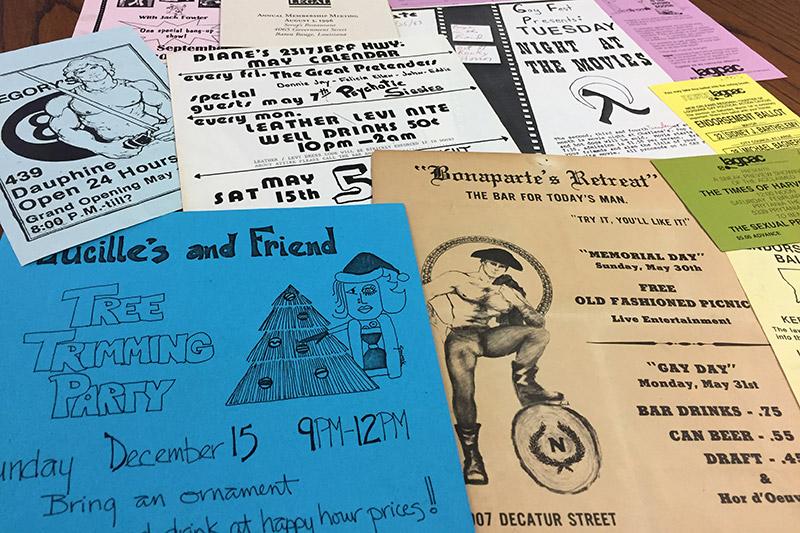LGBTQ papers are significant additions to Tulane archive
Among the Louisiana Research Collection’s many 2017 acquisitions, particularly notable are the papers of prominent Louisiana gay activists Stewart Butler, Rich Magill, Alan Robinson and Skip Ward.
Acquiring significant LGBTQ-related documents — letters, diaries, flyers and other materials — is one of the Louisiana Research Collection’s special focuses, said Leon Miller, head of the Louisiana Research Collection (LaRC) at Tulane University. The collections are critical to the study of the Louisiana LGBTQ community and will be of tremendous interest to researchers, Miller said.
Butler worked on voter registration, civil rights and political activism for more than 60 years. Magill studied violence against LGBTQ individuals. Robinson founded several LGBTQ organizations and owned Faubourg Marigny Books. And Ward worked on behalf of LGBTQ individuals in rural Louisiana.
These acquisitions were prompted in part by the LaRC’s work with the LGBT+ Archives Project of Louisiana, a nonprofit organization that helps locate and preserve LGBTQ records, and of which the LaRC was a founding partner.
“Courting people is what I do,” Miller said. “Part of my job as an archivist is to read the newspapers, talk to social clubs and civic groups, and be out in the community discovering documents that warrant permanent preservation. I then try to explain to the owners the value of donating them to Tulane.”
In 2018, Miller looks forward to working on creating an endowed fund for the LaRC’s LGBTQ collections.
“When we acquire a collection, we commit to preserving it permanently. Permanently means forever, and forever is expensive,” he said. “We hope donors will help with those permanent, ongoing costs.”
Acquisitions tend to build upon each other.
“Every new collection is a gateway to other acquisitions,” Miller added. “By publicizing these collections, we not only want to alert students and scholars to their availability but also let the LGBTQ community know that such things as letters and diaries are important and the community’s heritage is worth preserving.”
Like this story? Keep reading: Tulane preserves digital histories of LGBTQ activism in the South


